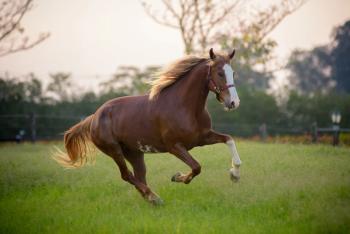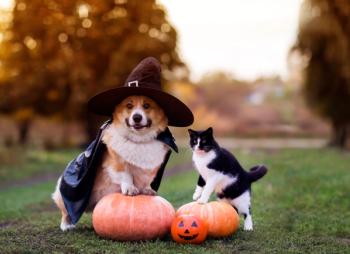
Futurist sees animal rights principles going 'mainstream'
Redwood Shores, Calif.-The animal rights movement is changing the way society views animals, according to an ethnofuturist, and in the next 20 years its increasing influence will become even more evident.
Redwood Shores, Calif.-The animal rights movement is changingthe way society views animals, according to an ethnofuturist, and in thenext 20 years its increasing influence will become even more evident.
When you take away the extremism of the animal rights movement, certainideas focused on improving the health and welfare of animals in societywill "go mainstream," explains Lee Shupp.
Shupp's job is to sleuth out lasting consumer trends as strategic directorand ethnofuturist with Cheskin Research, a consulting firm that has decidedlygone mainstream with a virtual Who's Who in corporate clientele such asMicrosoft, AT&T, Nestle and Kodak. Ethnography is the study of culturethrough deep immersion into everyday life. If you understand consumer behavior,you can make products and services to meet those needs.
In an interview with DVM Newsmagazine, he says this new growing academicniche -called futures-could be looked at as part anthropology, part statistics,part behavioral observation and part psychology with a goal of predictinglarge-scale trends in the next 20 years.
Shupp explains that the specialty was born primarily from the militaryin order to predict future weapons systems. Now, with two college programsin the country spewing out futurists with specialties from a wide rangeof professional disciplines, the future is looking, well, clearer.
Present focus
Shupp's present focus is on technology and the Internet, and he simplyran into these macro animal trends while working in other areas.
To figure out what is happening mainstream, you have to wander into thefringe social movements of today, he explains.
"If you look at fringe movements over time, you start to see patterns.You take things like civil rights, women's suffrage or the environmentalmovements; they all started with a small group of very vocal people thatmost people thought were kind of nutty. They kept up the message, and iteventually spread mainstream."
Shupp adds, "I am seeing a lot of the same patterns with the animalrights movement." Shupp says the vote in San Francisco recently tochange its legal language from pet owners to pet guardians is further proofthat mainstreaming is starting to happen.
"It is a very different way of looking at the relationship betweenpets and people," he says.
Here are some other influencers cited by Shupp:
* Publicity of animal cruelty cases where abuse is involved iscapturing national and international headlines.
* Pet spending has gone way up.
* Pets are getting Christmas presents; and they typically havestockings. What does that say about their status in a household?
* Family sizes are getting smaller in the United States, petsare replacing children as objects of strong emotional affection.
* Adoption centers already know that married and gay couples withoutchildren are perfect candidates for pet adoption.
* People are staying single longer, and there is a need for companionship.The average age for marriage is now in the late 20s.
* People have become more isolated in our society; that adds tothe need for companionship.
* Pets are living longer, and he would guess more expensive surgeriesare taking place today that would have never occurred 20 years ago.
Agriculture diverging
Shupp adds that the way our society is looking at animal agricultureis also changing. For example, Shupp says there are a growing number ofrestaurants that are actually promoting the environments in which theseanimals have been raised.
A bestseller, Fast Food Nation, takes a critical look at the way we areraising animals. Shupp's point: it is a bestseller.
"I saw on one menu, 'we only serve shell animals that are happyanimals with an ocean view.' Now you are seeing Fast Food Nation hittingthe bestseller list, and you can kind of see the cultural awareness gettingmuch bigger," Shupp says.
He sees marketing of agriculture products with consumers really split.One side will target a mass-produced, really cheap food. The other segmentwill target premium agricultural products.
Newsletter
From exam room tips to practice management insights, get trusted veterinary news delivered straight to your inbox—subscribe to dvm360.






